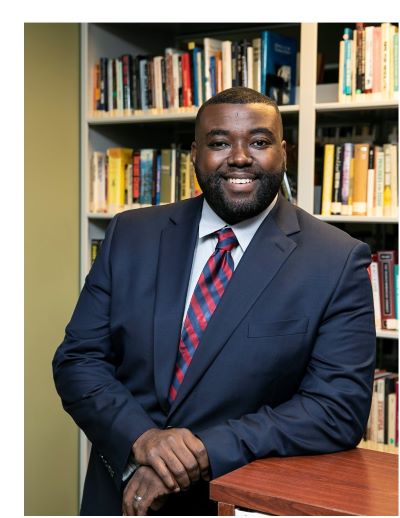
UMES’ social justice series speaker highlights the healing still needed
Friday, April 9, 2021
Charles L. Chavis Jr. calls himself a “scholar of racial terror” and brought the perspective of a college “professor, historian and peacebuilder” to an installment of UMES’ year-long social justice speaker series.
Chavis’ April 8 topic was the “Tulsa Massacre 100 Years Later: the Legacy of Racial Terror in America.”
His “virtual” guest lecture began with: “Why is the Tulsa Massacre so relevant” today?
“We need to look no further than what is unfolding before our eyes,” he said.
Chavis was referring to the murder trial of Derek Chauvin, the former Minneapolis police officer charged in the May 25, 2020 killing of George Floyd, a Black man, during a routine arrest. The televised trial of Chauvin, who is white, began March 29.
“I’ve reached a point where I recognize the saturation with this spectacle we’re watching is not healthy,” he said.
In late May / early June 1921, a group of angry white vigilantes stormed a segregated Black section of Tulsa, Okla., burning much of the middle-class community to the ground, an act that left hundreds dead and no one accountable. Historians note the attackers even used planes to drop bombs.
“We can draw a direct line between … Tulsa to the events we are witnessing today,” Chavis said.
An effort to reconcile what happened in Oklahoma during that dark period of American history has attracted the attention of social justice advocates, who see parallels today in deadly confrontations between police and Blacks over minor incidents.
It was that overarching theme Chavis wove into his hour-long presentation.
“Instead of a criminal individual being tried, the black man is tried,” he said. “This same trope and these same words are spewed out of the mouths of (lawyers) throughout the history of anti-blackness in this country.”
“Instead of justice working for black people,” Chavis said, “it’s always working against us.”
Chavis said he’s concluded there’s a connection between “white domestic terrorism” directed at blacks and economic well-being.
“The white mob spirit emerges boldly to stifle black success” in the business and education worlds, he said, with the goal to “control black bodies … and stoke fear.”
“These are questions we have to be honest about,” he said.
Chavis has emerged as an influential voice in the region’s social justice dialogue.
An assistant professor of conflict resolution and history at George Mason University, Chavis also is director of the John Mitchell, Jr. Program for History, Justice, and Race at the Jimmy and Rosalynn Carter School for Peace and Conflict Resolution.
He serves simultaneously as national co-chair for the U.S. Truth, Racial Healing, and Transformation Movement and as vice-chair of the Maryland Lynching Truth and Reconciliation Commission. Dr. Marshall F. Stevenson Jr., dean of UMES’ School of Education, Social Sciences and The Arts, represents the university on that state panel and invited Chavis to participate in the social justice speaker series.
Chavis is co-editor of “For the Sake of Peace: Africana Perspectives on Racism, Justice, and Peace in America.” He earned his doctorate in history from Morgan State University in 2018, writing his dissertation on the 1931 lynching of Matthew Williams in nearby Salisbury, which he is working to convert into a book due out in early 2022.
Lynchings and other acts directed at terrorizing Blacks, he noted, were and are not confined to the Deep South.
Chavis said he doesn’t believe a verdict in the Floyd-Chauvin trial will be transformative. Much more work toward understanding and reconciliation needs to be done.
“At what point,” he asked, “is holistic justice going to be part of this conversation?”
“I’m done talking about the trauma unless justice is on the table,” he said.

